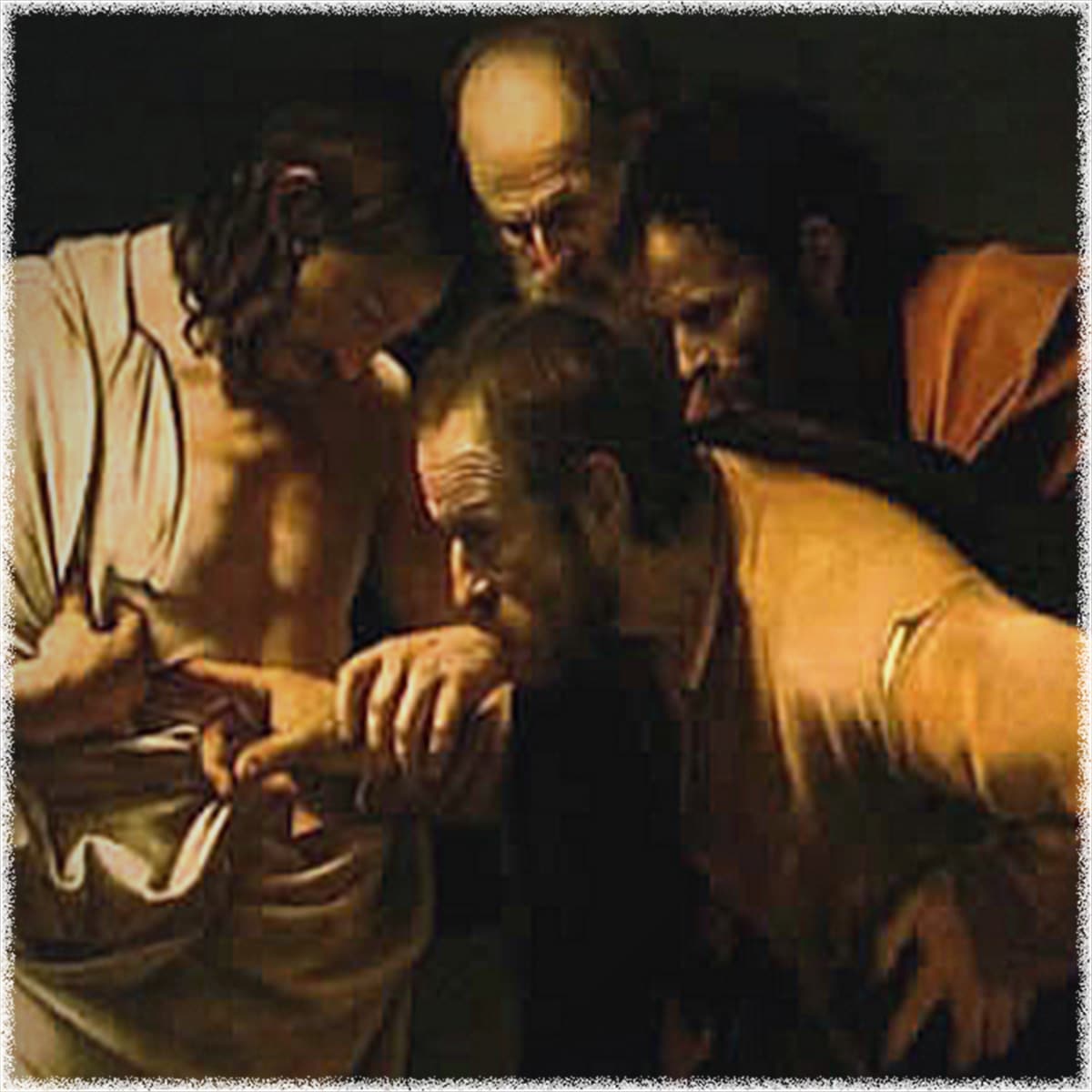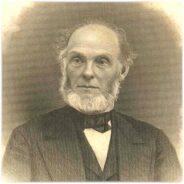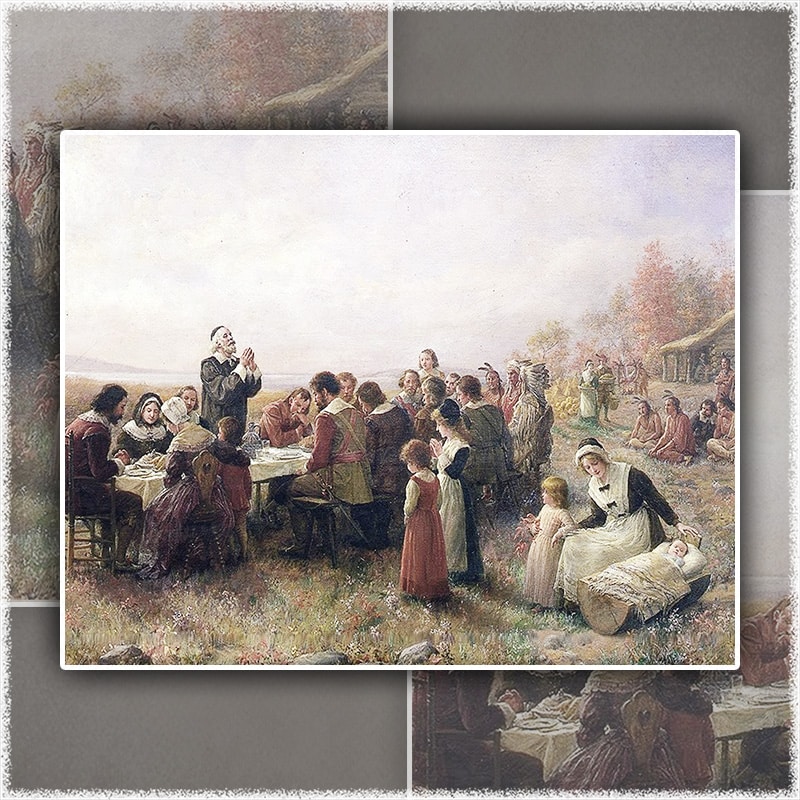Atonement: Suffering in the Place of Another

The doctrine of one suffering in the place of another for the forgiveness of sin (vicarious atonement) is one, generally speaking, that has been dismissed from the mind of the American Christian and remains a matter of ridicule for the secularist. Throughout the twentieth century, a sustained attack was waged against the teaching of the Bible concerning the doctrine of how one is permitted into a right relationship with God—known as the doctrine of atonement. At the beginning of the twenty-first century, there exists little appetite for Christian doctrine, even in those churches where it was one time warmly welcomed. Though this generalization may not be applied to the faithful "remnant," yet it is accurate of the general doctrinal and spiritual condition of the Church in America.
Just as a healthy diet must be maintained to enjoy physical health, so a responsible doctrinal diet must also be maintained if the Church is to realize vitality. Though doctrinal preaching and teaching should not be limited to only the "more important" Christian holidays, it is an exercise in dereliction if church leaders fail to address what gives Christianity its raison d'etre—its reason for existence. Since the doctrine of atonement distinguishes the Christian faith from among the religions of the world, it should not be neglected by Christian laity or leader.
The following essay is taken from one of the most distinguished leaders of historic Methodism in America. Daniel Whedon was distinguished in his own generation as a churchman, scholar, and author. His writing style is sometimes abrupt and often bears the marks of theological controversy—particularly against Calvinism. This brief work is presented with the hope that the doctrine of atonement might find regular interest from pastors and be proclaimed with clarity throughout our nation.
“Then saith he unto them, My soul is exceeding sorrowful,
even unto death.”—Matt. 26:38
When first the Moravian missionaries went to publish the Gospel to the savage tribes that border on the polar circle, acting on the secular maxim, that civilization and morality must precede Christianity, they commenced by attempting to impart wise lessons of economy and ethics. They found it impossible thus to attract the barbarians’ attention. Renouncing, then, their false philosophy, they next began, like true ministers of Jesus, to unfold the character of the Savior, to outspread the narrative of redemption, to paint the sorrows and generous self-devotion of the crucifixion. That moment the wandering eye began to fix, and the savage heart began to soften. In the cross was, by experiment, developed a power, unsuspected even by its most faithful adherents, to win the wildest spirit. The doctrine that civilization must take precedence of the Gospel was dismissed to its own place among the repudiated fallacies of conceited unbelief. The power of the dying Savior’s sufferings was anew revealed as the great secret of not only a world’s redemption, but also a world’s conversion.
Our text leads us to the precincts of Gethsemane, and, therefore, into the range of this great subject. With inquiring minds, and yet melting hearts, let us contemplate the scene and humbly scan the doctrine it unfolds.
It was upon the late evening of Thursday of the passion week that our Lord, after completing the Passover supper with hymning the great Hallel, arose, and, followed by the sorrowing eleven, walking through the eastern suburbs of the city, crossed the dark Kedron, and approached the margin of the ascending Olivet. There, leaving the main body of his train, he selects the chosen three—Peter, James, and John—the elect among the elect—and departed into the depths of the garden, or grove, of lofty olives, called Gethsemane. The same choice three who beheld the transfiguration on the mount, where Jesus was encircled with a glorious exaltation, must now witness the agonies of the garden amid the pressures of his humiliation. Yet it is at a reverent distance. “Tarry here,” the sufferer had said, “while I go and pray yonder;" and now he retired to a still deeper privacy of prayer. Then began the time of woe. Thrice did he depart, and utter supplication of such pathos as never fell from other lips than his. Thrice did he return to find his disciples weighed down with supernatural stupor, as if the hour and the power of darkness rested heavier upon them than the shades of approaching midnight. As he prayed the last time in his loneliness, deepest was his agony of all; and while the angel wing was fanning his brow, drops of sweat, like blood, were oozing from its pores.
Let us trace some of the deep thoughts suggested by this scene:
I. And, first, we repudiate the notion that the woes of the garden were the pangs of a mere human fear of approaching death; and we affirm that they were a distinct and independent part of our atonement. We see the sufferings of redemption in Gethsemane as on Calvary. In the garden man was lost by Adam the first; in the garden was man redeemed by Adam the second. If the sorrows of the garden were the shrinkings of fear, Socrates was a more genuine moral hero than Jesus. But upon this argument we dwell not. We affirm that not a syllable of the parallel narratives of all the four evangelists drops a hint of fear. He had predicted antecedently every step of the process from his entrance into Jerusalem to his resurrection from the sepulcher. By a divine foresight he moved lord of the whole scene and of the whole work before him. By a serene majesty he was lord of the whole group of characters, friend or foe, that circled around him. When the destined moment of suffering came, he meekly submits, in compliance with the law, that the Scriptures must be fulfilled. But even then he is lord of his own submission, and lord of the powers to whom he submits. And when, as he leaves the chosen three in the garden, and departs a stone’s throw into loneliness, with what emphasis is it said, as the destined moment arrives, he “began to be sorrowful.” As the vast hours of human history roll the moment on, the great clock of time strikes, and the first stroke of redemptive sorrow answers. Then, in the words of our text, does he confess that not fear, but a sorrow bigger than his heart can heave, is on his soul. Its terrible drench is too damp for the spark of life; and did not a divine fire still feed it, the sacred ember would expire. And then he was “sore amazed” —amazed! as if depths of horror, mysteries of evil, rolled themselves up before his view, so frightful, so unutterably strange, that even his prescient mind had never yet conceived them. And he was “very heavy;” the very reverse of fearful excitement, and the very token that the same vapor from the bottomless pit, that steeped the senses of his disciples, invaded the soul of their Lord and Master. And then, in the prayer poured forth with his agonizing sweat, he prays, not so much for exemption from the coming cross, as deliverance from the present “cup,” whose dregs he now is drinking. Not one thought of fear. It is all a present sorrow; a separate and distinct part of redemption’s twofold work.[1]
II. Our second position is, that we repudiate the idea that the Son of God was here overwhelmed with the bolts of the Father’s personal wrath; and we affirm that his sorrows were a tribute to the demands of pure and impersonal justice. That is, we shrink from the picture that is sometimes drawn, with terrific distinctness, delineating the Father Almighty as hurling his thunders, in blasting shocks, upon the unprotected person of his shrinking and suffering Son. On the contrary, all of directly divine in the transaction impregnated the person and sustained the strength of the glorious sufferer. Negatively, indeed, the divine countenance was plainly, in a measure, withheld. And truly this is woeful. Forsaken of God! Who could endure to have him, the God, the life, the light, the warmth of the world, withdraw and leave us stiff in the frozen darkness of some drear corner of the universe? Indirectly, also, the government of God accorded with the will of the sufferer to pay for man’s redemption the due of pure and independent justice. Justice is a separate, eternal, uncreated principle. It arises in its own clear power to the view in the combinations of things, and makes its stern yet rightful demands of men, and even of God. As well could divine power construct a vast material world in space, unsubjected to the laws of geometry, as construct a vast government of divine order, unsubjected to the laws of eternal justice. As easily might the multitudes of objects and events be poured forth from the hand of creation or providence, without submitting to the laws of arithmetic or number, as for the train of moral results to march forth unsubmitting to the laws of truth and right. Yet the same pure moral sense by which we recognize the element of justice, appearing in voluntary relations, affirms that such justice should itself be limited by mercy whenever the ends of justice are attained—without infliction, or with the least possible infliction. Mercy may rightfully rejoice against judgment. And the ends of justice are attained whenever at once the criminal is reformed and regenerated, and the public rule of order is maintained by the effectual condemnation of sin. If the Christ, by suffering, furnished the requisites by which the sinner may be reformed and public right can be sustained, then we need no outpouring of personal wrath from the Father Almighty to solve the problem of his woes.
Yet let us be just to the theology that has used this language attributing the sufferings of Christ to the personal wrath of God. Essential justice is indeed impersonal. It inheres in the nature and relations of things. Yet, in another sense, it becomes the attribute of the being who truly maintains it. And the wrath of God is simply his disposition, purpose, and act of maintaining corrective and punitive justice. Just so the justice of a government may be colloquially styled the wrath of that government. The sentence pronounced in the sovereign’s court, the Court of King’s Bench, is the official wrath of the official sovereign. In this sense, though sometimes with doubtful good effect, the sufferings of Christ, endured for the end of God’s governmental justice, may be conceptually styled his endurance of the Father’s wrath.
III. In the third place, our Redeemer paid the due tribute to governmental justice by suffering in the stead of the sinner the punishment of his sin. Herein we fully adopt the old-fashioned but never-to-be-obsolete doctrine of substitutional atonement. And in order to realize what we mean by suffering punishment in the sinner’s stead, let us take a most plain and common sense instance.
More than thirty years ago Mr. Fauntleroy, an eminent banker of England, of great financial talent, was found guilty of forgery and sentenced to capital punishment. The public sympathy was aroused, and petitions by thousands poured upon the sovereign for pardon in vain. The sovereign’s human heart was ready to melt; but the majesty of law must be maintained. During the excitement a gentleman, whom we will call Mr. A., came forward and offered to suffer the punishment in Fauntleroy’s stead. Of course neither the statute laws nor customs of England permitted such an arrangement. The gentleman was dismissed, and the public smiled at his simplicity.
Suppose that this offer had been made, not under the government of England, but under the sway of an absolute monarch of purest wisdom and benevolence, unbiased by conventional customs and open to the pure dictates of absolute right. Mr. A. comes forward and says, “I offer to die in this man’s stead. I have a right to yield to suffering for him by my own free consent; and, being inflicted at my own desire, it does me no wrong; and being inflicted on a capably consenting subject for public ends, it can be no crime in government.” The sovereign reasons thus: “By this man’s voluntary suffering, which does him no wrong, mercy may be extended to the criminal and the public sympathy may be gratified, while the crime of forgery is still condemned, the majesty of law is honored, and the authority of government is maintained.” I much mistake if the common sense of my audience would condemn him if he accepted the offer; or if “the universal common sense of mankind “would not sustain the deed. And still abstract absolute justice, which rigorously demands that the guilty alone should suffer, is not executed. Yet, while abstract justice is not done, something higher and nobler—something the benevolent sense still more approves—is attained instead. For we have before remarked that the same moral sense which demands pure justice, reverses its own decision and condemns pure justice when all the ends of justice are attained, with mercy in addition. Over-justice is cruelty. And that is over-justice which insists on exaction that attains an inferior result.
But the case I have put increases in its clearness by enlarging its magnitude. Instead of Fauntleroy, put our entire race; and instead of Mr. A., put the man Jesus; yet the man Jesus dignified with a divinity which immeasurably raises the value of his suffering to honor the law and condemn sin. By so much as mercy is thus secured for a whole race rather than for a single man; by so much as that mercy is secured by the brief suffering of the loftiest dignitary; by so much as a divine law is sustained and rebellion under a divine government is condemned; by so much is the atonement which redeems us superior to the substitution which is supposed to redeem a Fauntleroy. And this result is attained by the Redeemer suffering the penalty of the sinner’s guilt instead of the sinner’s self.
But when we speak of suffering the punishment for the sinner, let us analyze our own language. The substitute, truly and strictly, is not punished. That endurance which to the sinner is punishment, is to the substitute only simple suffering. Why? Because punishment, in its own idea, implies in the sufferer the guilty act as its correlative. Wherever the sinner and the sufferer are not the same, it is only with an allowable inaccuracy that the suffering can be called punishment. It follows that it is not strictly accurate to say that Christ was punished, or that he truly suffered the punishment of sin.
Still less is it necessary to say that the forgery of Fauntleroy is imputed to A. He is not the forger’s substitute in the crime, but only his substitute in the suffering. He is not morally, nor actually, nor legally guilty. There is no strict transfer of guilt; for guilt is strictly personal. It is then wholly unnecessary, except as an allowable freedom of language, to say that Christ was a sinner, that sin was imputed to him. Simply, the innocent endures suffering that the guilty may not endure punishment. When, in free inaccuracy of speech, we call the suffering of the substitute punishment, in order to justify our terms, we may assume that with a supposed punishment there shall be a supposed guilt and sin. Only conception must not be taken for perception; and popular phrase must not be taken for rigid expression of language.
Nor is it quite accurate to say that the substitute endures precisely the same suffering as the sinner. One man cannot suffer another man’s pain. My head cannot feel another man’s headache, nor my limbs another man’s rheumatism. I may suffer very similar in character and degree; but the similarity is not sameness. Nor, in the case of the substitute, is the similarity of the suffering very fixed or exact. Mr. A. has little of a similar mental pain with Fauntleroy. None of his remorse has he; none of his bitter recollections; none of his overwhelming shame, and none of his dread of death. Perhaps he has less sensibility of body; more strength of nerve; and so much alacrity for his fate that there is no dread in anticipating, no pain in feeling the last throb. Yet all is accomplished, however varied the operation, if the honor of law is sustained and government maintained in its power. We still say that the substitute suffered the punishment of the criminal, and in the same way it is that we may say that Christ suffers the punishment of the sinner.
IV. At this point let us attempt in the fourth place reverently to conjecture the nature of the woes of Gethsemane. We have rejected the idea that they were the pangs of anticipating fear; or, in a strict sense, the direct and angry infliction from the Father Almighty. We are not obliged nor disposed to admit that they were the same as the suffering sensations of the sinner would be. We are only obliged to admit that his sufferings are such as, instead of the sufferings of the sinner, to meet the demands of law, condemn the existence of sin, and sustain the divine order. He suffered with a higher dignity of character than belonged to our race, illustrious though that be, and so conferred a higher honor on the law. Yet he suffered not the pangs of personal remorse or the sense of deserved shame. He was not obliged to suffer eternally, for an infinite aid enabled him to concentrate, perhaps, an eternity of sorrow into a few brief hours; as an infinity of dignity enabled him to expiate the dishonor of law, by asserting its infinite worth. And as he possessed no personal guilt, so he endured no strict personal punishment, only simple sufferings in the stead of others’ punishment, and effecting the same and higher results.
What, then, were the precise sources and nature of those sufferings in Gethsemane? He sorrowed, we are told; he “was heavy; “he was “sore amazed; “he was “in an agony.” These are all sufferings in the spirit, and hence we have perhaps a key. As the sufferings of Calvary were of the body, so they were from the world of bodies; and just so as the woes of Gethsemane were of the spirit, so they were from the world of spirits. As the sufferings of Calvary were from sin and sinners corporeal, so the sufferings of Gethsemane were from sin and devils incorporeal. Of the great twofold work of the atonement, the former was the visible and patent part; the latter the invisible and mysterious. In this mysterious part, the visible and audible effects in the agonies of the garden are alone depicted; but in these sensible effects the awful, the measureless, the bottomless causes and sources are fearfully suggested. Not punished for his own sin, the sufferings of that pure soul were in the presence and at the sight of sin itself in all its horrors. They were his deep shudders before the monstrous face of hell. Nothing to sorrow for in himself, the sorrows of the Son of man were the overwhelming deluge of humanity’s flood of sorrows, rolling their waves upon his sympathies, and sinking him in their own death. That sore “amazement “—what was it but the depths of evil, the surges of the bottomless pit, rolling up horrors to his view, inconceivable hitherto to his pure mind? No wonder that he was “very heavy” at the shock; for could we, friends, conceive for one moment all that is embraced in this one word HELL, that terrible conception, without special aid to sustain its shock, would strike us to the earth. And when all these complicated forms of woe which evil could present, were forced upon him, it was fitting that the agonized prayer which recorded his own utmost of shrinking dread yet perfect resignation, should stand forever as our ensample.
Such was the terrible woe of Gethsemane. When man, the great collective person of our race, was under sentence of death, there came a loving stranger, who said to the King Jehovah, “Let me suffer in his stead; thereby sin shall be damned, law shall be honored, and thy throne be, in principle, sustained; and still man shall be heir of mercy, and render heaven sweet with the eternal anthems of his gratitude. I will endure the ocean of his griefs; I will encounter the hell of his guilt; I will bare my breast to the blow of the infernal smiters of his soul, if all this may stand as the substitute of justice to the uttermost on his being.” O surely, never in all the conceptions of the most transcendent genius could be wrought up a drama unfolding in such fullness and variety the grandest and the tenderest of interests. In the covenant of the New Testament, Jehovah gives the wondrous pledge, the oath of mercy. “As I live,” says God most high, “because thou hast done this mighty work, hast suffered this great equivalent of human penalty, whoever of men shall accept thy deed shall be accepted of me.”
V. And now, fifthly, of that which was supernatural, mysterious, and unearthly in Gethsemane, the natural, the corporeal, and the human counterpart is laid bare upon Calvary. All the hierarchy of demoniac powers, all the intensities of spiritual wickedness poured their worst upon his soul in the garden. All the hosts of wicked men, the vilest specimens well selected from the race, and all the energies of human hate and scorn, satiated their utmost appetite on his body at Golgotha. Dream not because Gethsemane’s work was invisible, and thereby less impressible upon our senses, that it was any the less an integral part of the atonement. More, rather. It was fitting that, as in the work of Gethsemane, his suffering soul was made a spectacle to angels and exposed to the sneer of fiends and devils, so on the tree he should be made known in suffering to the eyes as well as from the hands of men. Corporeal man can only thus be made to realize how he truly suffered. Calvary is thus the expositor of Gethsemane. It is the external part standing as the figure of the internal. It is the material revelation of the invisible reality. And being material and palpable, the cross, while comprehending but a small item of the entire, can stand the symbol and suggestion of all that Gethsemane, as all that Calvary, embraces.
VI. But all this infliction has—it is our sixth step—a strict JUDICIAL nature. Did it ever strike you, friends, that the wicked, whether fiends or men, are often, perhaps always, the executioners of God’s judicial sentences? They are, as it were, the base hangmen of God’s republic; and, as in many governments, the hangman and the malefactor are morally akin. The devil and his angels are the tormentors of the damned. And is not sin the essence of hell? What are those two ingredients in that burning lake—fire and brimstone—but sin and guilt? What is hell but the kindred dregs at the bottom of the cup of sin, which he who sips at top may have to swallow to the utmost? And what were the legions of fiends and men at the crucifixion but the regular regiment of criminal execution? Thence, when our divine substitute came to endure the substitute suffering for human retribution, like the substitute who desired to suffer for the English forger, he endures all the external forms of judicial infliction at the same external hands as the guilty sufferer himself might have endured.
All that terrific paraphernalia of the crucifixion, with its surrounding host of furious foes, its companionship of thieves, and rejection in comparison with the robber, with its spitting, its buffet, and its mock demand for prophecy, with its thorny crown, its piercing spear, and its fatal cross, are the external cruelties of men to his body, parallel to the mockeries and wrath of their brethren in judicial infliction, the fiends of the infernal prison. Sense may, indeed, be most impressed with the material part. But he who would rise to all the grandeur of the entire transaction must comprehend, in one great unity, the whole work of the glorious atoning sufferer. And so comprehending it, we behold the unholy fraternity of earth and hell at once exhibiting their own twofold infernal character to the eyes of angels and of men, at the same time that they are truly the executioners in the divine hand of that infliction which, executed upon the guilty, would be divine punishment. They were as truly God’s executioners as Assyria was the ax in the hands of Jehovah. So are earth and hell compelled to be the instruments of divine retribution. So do the wicked—sinners and devils—become God’s punishers of sin. So does one part of hell execute divine vengeance on the other. So is hell its own punisher.
And as the agents of this stupendous work belonged to two diverse worlds, so may we believe that the work itself rolls and ever will roll its waves of surprise and wonder through all the ranks of intelligences of both natures. The cross of Christ on earth, we know, was visible to men; it has taken its central position, too, we know, in human history; it has worked its transforming wonders over society in ages past; it has yet to go forth, in still more world-wide power, through ages yet to come. But no human tongue can tell with what electric power it may have thrilled through the worlds unseen. Scripture hints, but does not tell. Of the principalities and powers, of the mights and the dominions, which we only know by sudden lightning flashes of inspiration, whose light departs before our eye can analyze the stupendous systems they so momently reveal, we know neither the mode nor the amount of the influence they may receive. But this we dare believe, that the influences of the cross—including Gethsemane as well as Calvary—send their power far, reaching, as the lines of gravitation itself; through all the systems of God’s moral universe.
To the doctrine of substitutional atonement we may now remark that it is objected that by it wrong is done: 1. By transferring guilt; 2. By causing the innocent to suffer; and 3. By letting the guilty go free.
First, thoughtful objectors to the atonement say: “We cannot see how guilt can be separated from the wrong-doer and made the attribute of the innocent.” But, in answer, we deny that our view of the atonement presupposes this transferability of guilt. Guilt is personal and untransferable, being inseparable from the intentioned author of crime. The innocent is, in our view, the substitute for the wrong-doer, not in guilt, not in desert, not even strictly in punishment, but only in suffering. He voluntarily undergoes a simple suffering, that another man may not undergo punishment. Endurance, indeed, is in a sense interchanged, but not guilt. Pain is transferred, but not penalty.
But, second, the objector answers, “Here, then, is the wrong—that the innocent suffers in order that the guilty may escape.” Let us divide the objection. That the guilty escape will soon receive reply. At present the point of supposed wrong is, that the innocent suffer. And now we maintain the right of a free being voluntarily to suffer. Do we not all claim, in view of a great good, the right nobly to endure? For fortune, for fame, for country, for love, for hate, how do men brave and glory in toil, in privation, in danger, in sorrow, in blood, in death. Does not the patriot suffer for his country? Does not the martyr suffer for the truth? And O that mother—can you deny, can you prevent her suffering for the existence, for the fortune, for the honor, of her child? No. Ours is the prerogative, guilty or innocent, to suffer. And if man, so little master of his own being, may claim, with the divine consent, this use of himself, how much more the God-man, more completely lord of himself, may claim, with the divine consent, to voluntarily, freely, consecrate himself to suffering life and death. For the joy that was set before him, he rightfully endured the cross, despising the shame, and is set down at the right hand of God. And so said the glorious sufferer himself: “Therefore doth my Father love me, because I lay down my life, that I might take it again. No man taketh it from me, but I lay it down of myself. I have power to lay it down, and I have power to take it again. This commandment have I received from my Father.”
And if he had a right voluntarily to suffer, then that free-chosen suffering was right. It was right as a part of divine order. It was right in Christ who suffered. It was right in God, who not inflicted but permitted—or, if not permitted, vailed his face and withdrew his preventing hand, while the powers of evil were rolling on their evil consummations from which he would educe the final good. But if right in Christ and right in God, it was not right in the fierce malevolence of fiends in Gethsemane or men at Calvary. If the source of those sufferings was the malice of hell, the resulting good to man renders hell none the less guilty. The treason of Judas contributed to human redemption, but that redemption never exculpated Judas from treason.
But, third, it is objected, If innocent men have a right to suffer, and to suffer for others, still it is wrong that the guilty should escape; and so wrong for the innocent to suffer that the guilty may escape. Is it, I ask, always wrong for the guilty to escape? Alas for us! Who, then, can be saved? If so, then we must believe not in universal salvation, but in universal damnation. But is the escape of the guilty always wrong? If so, then mercy is blotted from among the virtues and eclipsed from the divine attributes. The escape of the guilty, I affirm, then, is wrong where it results from the weakness, the carelessness, or the wickedness, of government; or where it results in the degradation of law, the dishonor of government, the exaltation of sin, or the contradiction of God’s divine order. Where these are saved, Mercy may rejoice over Justice. She becomes a higher and diviner Justice.
Thus far, upon the grounds of reason, we have maintained the ADMISSIBILITY of the substitutional atonement—not its FACT. Its reality can be proved only by revelation. The actual mode of God’s dealing is declared only in God’s own word. And opening that word, if this doctrine is not taught in a rich variety of form in that word, it is a strangely deceptive word. Open we first the Old Covenant. Turn to those visible prophecies of the suffering Messiah, the Mosaic sacrifices. Did not the victim bleed as the substitute of the offerer? On the day of the Passover a lamb was slain and his blood was sprinkled over the lintel of Israel’s door, so that when Jehovah sought to destroy he should see the blood and pass over harmless. Why was blood selected as the signal rather than a white flag, or a painted sign, or a lettered telegraph? The reason is plain. Israel was held to be a death-deserving sinner as well as Egypt; but Jehovah accepted the slain victim as his substitute, and the blood upon his door as the evidence. So the apostle assures us that Christ our Passover is slain for—mark you for us. And then, in the great day of the atonement, Israel brought the victim before the tabernacle, and, confessing his sins, did, by the hands of the high-priest, lay his own sins upon the victim, and then sacrifice the victim’s life. Plainly therein Israel, by God’s command, confessed that his own sins deserved that death which his victim suffered in his stead. From this system of visible prophecy turn we to the verbal prophecies of the predictive Scriptures. Hear Isaiah, in that wonderful fifty-third chapter: “Surely he hath borne our griefs, and carried our sorrows. . . . He was wounded for our transgressions, he was bruised for our iniquities: the chastisement of our peace was upon him; and with his stripes we are healed. The Lord hath laid on him the iniquity of us all.” What language, if not this, can express substitution? Coming down to the New Testament, what says the Lord himself of his own death? “The Son of man came to give his life a ransom for many.” What is a ransom but a substitute? The ransom given for a detained captive is a substitute received by the detainer in the stead of his captive. And similarly testify the New Testament writers: “He became sin for us, who knew no sin, that we might become the righteousness of God through him.” “Christ hath redeemed us from the curse of the law, having become a curse for us.”
Never can this phraseology, forming as it does the great current of New Testament language on the subject, be fairly understood to mean less than this: that the innocent Christ stood in the place of the guilty, and endured those sufferings which, upon the criminal himself, were literal and just punishment.[2]
And this atonement, we closingly remark, is for all—all of our sinful, fallen race. Scripture declares without reserve He died for all—He tasted death for every man. Universalism then infers, if all are atoned for, then are all saved. If Christ suffered for sin, how can man a second time suffer, so that the penalty for one sin be twice inflicted? Partialism replies that the Savior died not for all but for a part. And truly we might seem to be able to say that Christ died solely for voluntary true believers, and thus admit a conditional partialism. But not so does Scripture put the case. Scripture, undeterred by the apparent logical consequence, will have it that for some the Savior died in vain; that even the weak brother for whom Christ died may perish; that the apostate may deny the Lord that bought him, and bring upon himself swift destruction. For him who is damned, as truly as for him who is saved, was atonement made. And Scripture leaves it there. If there be a wrong about it, that wrong is left upon the sinner’s head to aggravate his guilt and deepen his damnation. God in his word grounds himself on his own divine idea of universal intentional mercy. Yet is that mercy conditioned. The atonement is for all, and for all equally and alike; requiring of all and of each that as God hath accepted the dying Savior as his satisfaction, so man shall accept him as his substitute. God hath provided all; Christ hath done all; man must accept all. He must thus accord with the covenant. He must thus harmonize, as the third consenting party, to the arrangement of mercy. Thus must he be saved by his own consent. As God was free in providing redemption, as Christ was free in achieving it, so man must be free in accepting and receiving it. Otherwise it is a lost work. As love may be wasted on unworthy objects, so redemption may be wasted on unaccepting subjects. To all eternity there may, through the sinner’s fault, be these three wrongs: That the penalty of sin be twice inflicted, that redeeming blood be shed in vain, and that an infinite amount of saving power shall lie forever waste. Not one drop, indeed, of that rich blood shall waste, for every drop shall go to glorify the faithful Church triumphant. But in that every drop there is a surplus power that might have saved the untold millions of the lost; power enough to have left the prison-house of woe forever vacant. But still that power of blood is not quite lost. It cries to heaven and earth. It goes through the universe with the tale how merciful was God, how loving was Christ, how impenitent was man. To the very lost it testifies the richness of the provision, the freeness of its offer, the ease of its acceptance, the guilt of the rejection, and the right of the condemnation. And this plenteous fullness of that blood shall add an infinitely abounding volume to the song of the crimsoned hosts—the ten thousand times ten thousand and thousands of thousands who forever cry, “Worthy is the Lamb . . . to receive power, and riches, and wisdom; . . . for thou wast slain, and hast redeemed us to God by thy blood out of every kindred, and tongue, and people, and nation.”
America deserves to know its true heritage.
Please contribute today!
Related Articles
[1] St. Paul does indeed (Heb. v, 7) ascribe to him a “fear.”Yet this was not a mortal fear of corporeal pain and death. It was a just fear of his own incompetency to the “cup “of the atonement; a fear which was the basis of that prayer for divine aid which could be divinely thereupon granted. This “fear” formed, therefore, a proper part of the mental process of the great work. The sufferer was heard in respect to that which he feared; for a divine aid made nature physically sufficient to the divine task.
[2] * To those who may argue that our proof texts assert transfer of guilt, and so of punishment, we suggest a brief reply. Every passage that can be quoted for such a purpose, could be applied with the most perfect naturalness to Mr. A. in the supposition; and so applied, the limitations we have drawn would be strictly maintainable. Let the experiment be tried upon our every quoted text.













